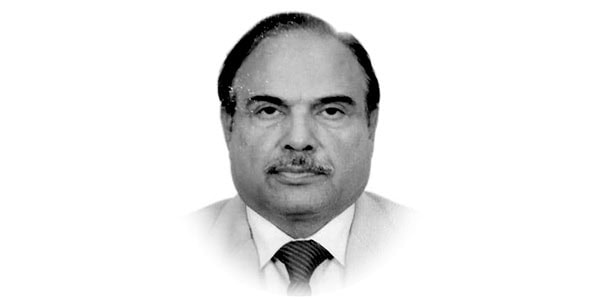Article 63A is plus of democracy norms, full court bench be formed
The Chief Justice of Pakistan-led three judges bench, which included Justice Ijazul Hasan and Justice Moneeb Akhtar announced the judgment in the absence of counsel for the respondent ruling coalition parties, who had during the proceedings earlier in the day informed the court that on instructions of their clients, they were boycotting the hearing.
Later, in the small hours of 27th July morning Dr. Arif Alvi, administered the oath to Chaudhry Pervaiz Elahi as Chief Minister of Punjab at President House Islamabad.
Mr. Pervaiz Elahi had to rush from Lahore to Islamabad after Punjab Governor Baligher ur Rehman refused administer out the oath.
Their clients intended to move a review petition against the court’s Monday decision of declining their request the rejection for a full court to hear Mr.
Pervaiz Elahi’s petition against the rejection of 10 votes of PML-Q lawmakers polled in the favour during the CM election in the Punjab Assembly on July 22.
The Supreme Court declared Chaudhry Pervaiz Elahi as the duly elected Chief Minister of Punjab for securing 186 votes against the 179 of his opponent, PML –N’s Hamza Shahbaz, in the July runoff election for the coveted office of the province.
The contentious Supreme Court decision striking down Deputy Speaker Dost Muhammad Mazari controversial ruling that disregarded the votes of 10 PML-Q lawmakers in the runoff election as per article 103 of the Constitution for Punjab, Chief Minister has raised serious questions about the fate of the coalition government in Islamabad and the PML-N’s future in the province.
In its widely anticipated judgment on a petition filed by Chaudhry Pervaiz Elahi, the three judge bench headed by Chief Justice of Pakistan ordered the immediate notification of the success of the petitioner in the elections for Chief Minister, paving the way for a change in the country’s most populous province and political heartland.
It is irrelevant whether the conclusions reached through the short order are correct or not. A losing party will only accept a judicial decision against them if it is perceived to be the result of a fair, just and legally correct process.
Unfortunately, the root causes of this judicial crisis lies in the erroneous judicial choice where the quick conclusion of this case was preferred over the fairness of the judicial process.
As per constitutional experts, the reason why Article 63A was inserted in the Constitution through 14th Amendment in 1992 was that on certain important matters, such as electing Prime Minister or a Chief Minister, or casting vote on a confidence or a no-confidence motion or on a money bill or amendments the Constitution, all elected members of a political party were required to vote on the basis of a joint stand of the parliamentary party to which they belong.
Any member voting or abstaining from voting in disregard of the joint stand was to be taken as an act of defection from the party which in turn could lead to his or her removal from the House.
This intention of the Constitution becomes clearly apparent from a plain reading of Article 63A, 1-B of the Constitution.
The reason Article 63A gives primacy to the parliamentary party and not the party head is that matters covered by Article 63A are too important, each of which needs to be decided on the basis of the concept of collective wisdom.
Hence, Article 63A, 1-B vests powers in the parliamentary party to set the course as to how a matter is to be voted upon.
This collective will of all elected members of a parliamentary party is to be reached either unanimously by all members of a parliamentary party or by its majority.
There can be a situation on matters covered under Article 63A of the Constitution, the collective decision of a particular parliamentary party clashes with the decision of its party head.
This had happened in 1992, during 1997 when Mian Khursheed Qasuri differed to pass 15th Amendment.
This may rarely happen but nevertheless a possibility exists. In such a situation, the presiding officer has to look at Article 63A of the constitution.
The right of the party head to make a declaration of defection to the presiding officer and the Chief Election Commissioner of Pakistan, in terms of Article 63A, 1-B can be invoked only when a member of his party has voted in disregard of the direction by his parliamentary party.
So in that eventually only a party head can declare to the presiding officer and the Chief Election Commissioner that his party member has defected from his political party and that he is de-seated.
It is for this reason that Article 63A, 1-B was inserted in the Constitution which up-holds democratic norms and gives primacy not to be party head but to the collective decision of the parliamentary party, to decide as to how its members are to vote on matters covered by Article 63A.
It is for this reason that this Article binds of any member of his party solely on the litmus of direction issued by his parliamentary party.
—The writer is former Secretary Election Commission of Pakistan and currently Chairman National Democratic Foundation.










